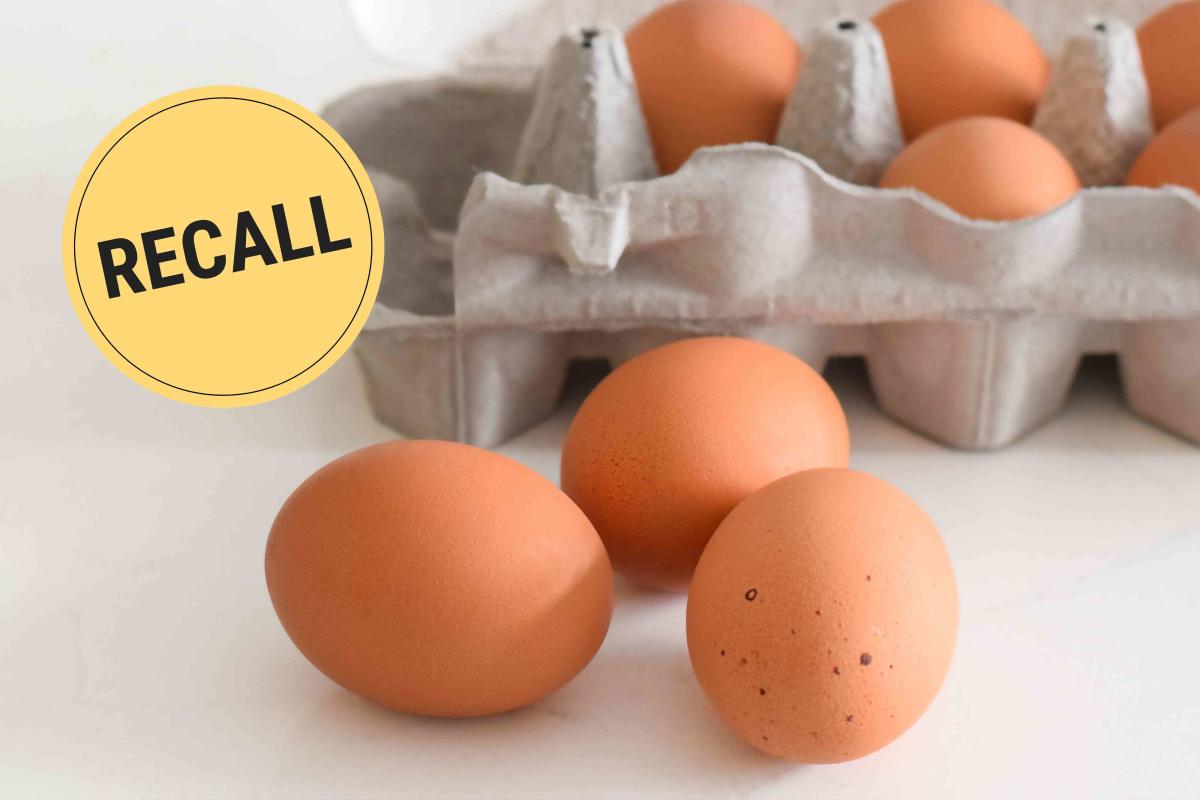Check your fridge.
Simply Recipes / Adobe Stock
On September 30, the Food & Drug Administration (FDA) reclassified an ongoing egg recall to a “Class 1 recall” classification, which means that “a situation in which there is a reasonable probability that the use of or exposure to a violative product will cause serious adverse health consequences or death.”
As of September 6, the FDA and the CDC have reported 65 infections, 24 hospitalizations, and zero deaths linked to the recall. The reported infections came from people in Wisconsin, Illinois, Michigan, Iowa, Minnesota, Virginia, Colorado, Utah, and California.
The egg recall was announced after an ongoing Salmonella outbreak was linked to eggs produced by Milo’s Poultry Farms, LLC. Cumulatively, 453,572 dozen eggs (or over 5.4 million eggs) have been recalled to date. The recalled eggs were distributed to retail stores and food service locations in Wisconsin, Illinois, and Michigan, and include:
-
All cartons labeled “Milo’s Poultry Farms,” “Tony’s Fresh Market,” and “M&E Family Farms”
-
Chicken eggs and duck eggs
-
All types (conventional, cage-free, organic, and non-GMO)
-
All sizes (medium, large, extra-large, and jumbo)
-
All carton sizes
-
All expiration dates
What Is Salmonella?
Salmonella is a bacteria that can make people sick. Signs of Salmonella poisoning include diarrhea, fever, stomach cramps, and dehydration. Symptoms start six hours to six days after exposure to the bacteria. Most people recover without any treatment after four to seven days.
Salmonella may cause infections that require medical treatment or hospitalization and may be fatal for young children, the elderly, and those with compromised immune systems. The Centers for Disease Control and Prevention (CDC) estimates that every year, Salmonella causes 1.35 million infections, 26,500 hospitalizations, and 420 deaths in the United States, and food is the most common source.
If you purchased eggs in cartons labeled “Milo’s Poultry Farms” or “Tony’s Fresh Market,” do not consume them. Throw them away. Wash your hands immediately. Salmonella can survive in the refrigerator and freezer, so if you believe you stored the potentially contaminated eggs that were part of the recall in your fridge, follow the FDA’s guide for cleaning and sanitizing surfaces.
Contact your healthcare provider immediately if you experience any symptoms of Salmonella.
If you have questions, you can contact Milo’s Poultry Farms at (715) 758-6709.
Read the original article on Simply Recipes.


